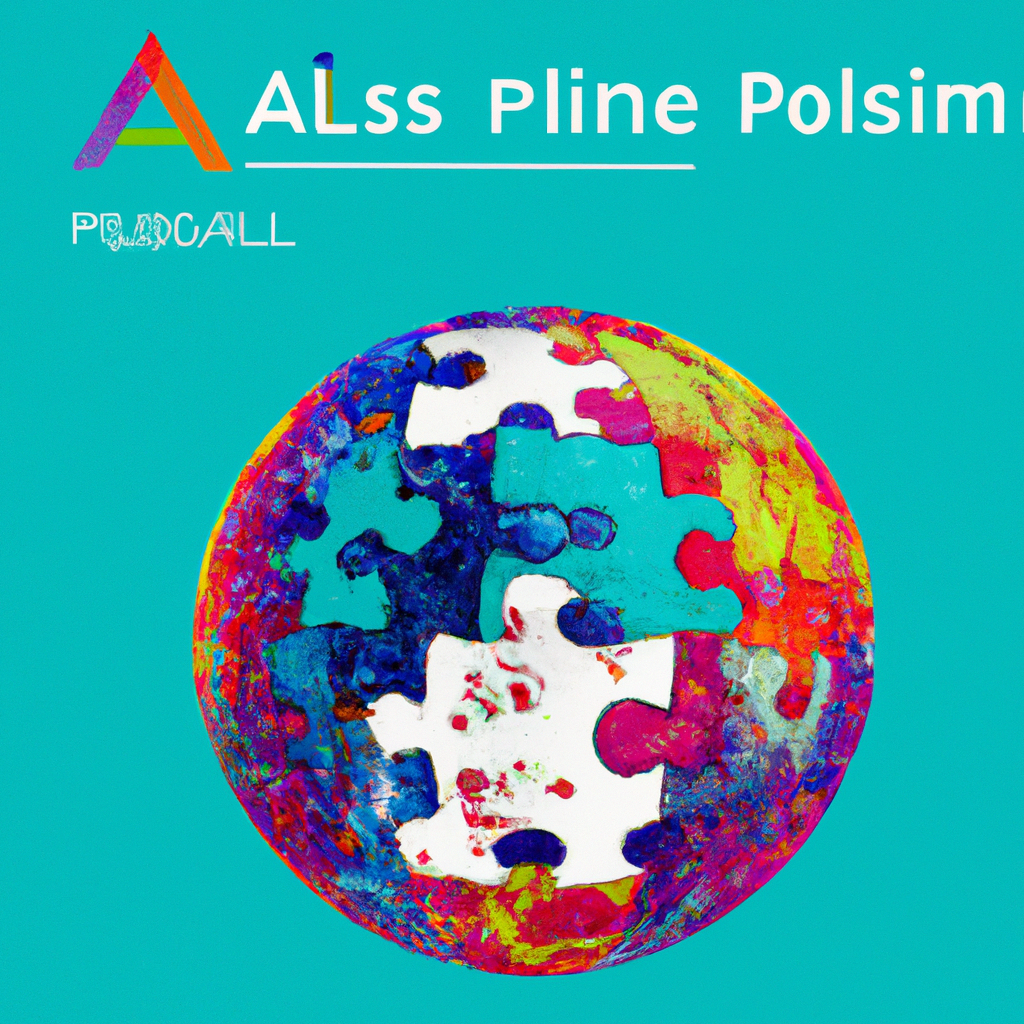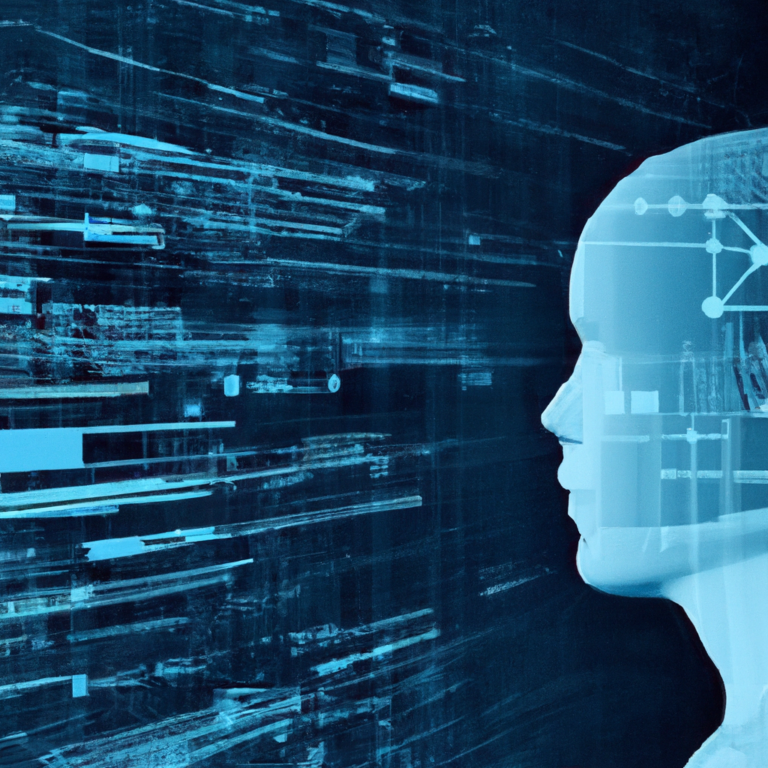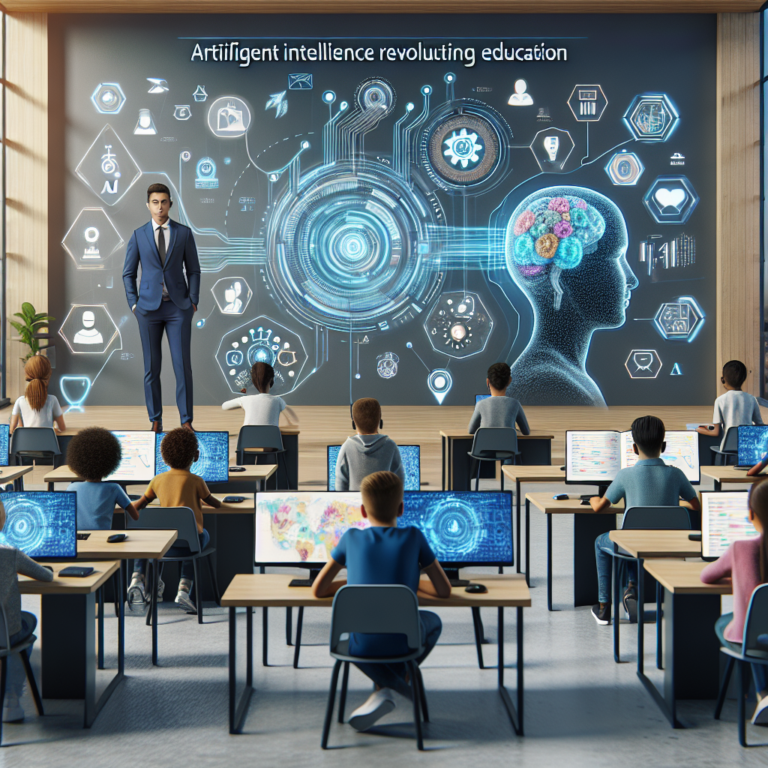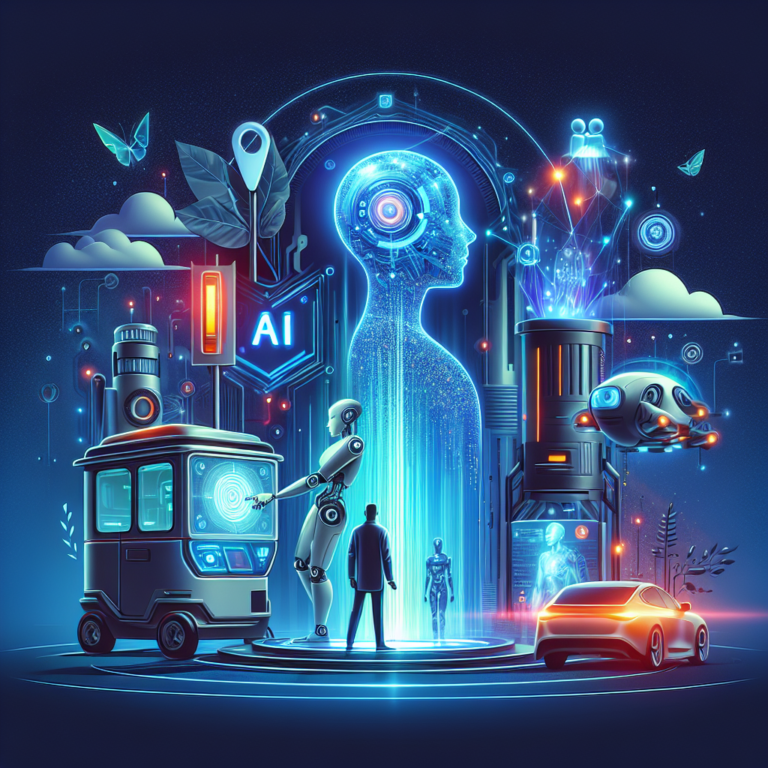
Have you ever wondered how artificial intelligence (AI) can positively impact the world we live in? In this article, we will explore the various ways in which AI can be utilized to make our world a better place. From improving healthcare systems and advancing education to tackling environmental challenges and enhancing public safety, AI holds incredible potential to drive positive change and create a brighter future for all. So, if you’re curious about the possibilities of AI and its transformative power, read on to discover how we can harness this technology for a better world.

Understanding AI
Artificial intelligence (AI) has become an integral part of our everyday lives, transforming various aspects of society. But what exactly is AI? In simple terms, AI refers to the simulation of human intelligence in machines, enabling them to perform tasks that typically require human intelligence. AI systems can analyze vast amounts of data, recognize patterns, and make decisions or predictions based on that information.
Types of AI
AI can be categorized into two main types: Narrow AI and General AI. Narrow AI, also known as weak AI, is designed to perform a specific task or set of tasks. Examples of narrow AI include voice assistants like Siri and Alexa, recommendation systems used by streaming services, and autonomous vehicles. On the other hand, General AI, also known as strong AI, is capable of performing any intellectual task that a human can do. However, true General AI that can rival human intelligence is still largely theoretical and has not yet been achieved.
AI Applications
The applications of AI are vast and diverse, spanning across various fields. Let’s explore some of the key areas where AI is making a significant impact.
Using AI to Improve Healthcare
The healthcare industry is benefiting greatly from the integration of AI technology. One of the most significant applications of AI in healthcare is diagnosing medical conditions. AI algorithms can analyze medical images, such as X-rays and MRIs, with greater accuracy and speed than human radiologists. This has the potential to improve diagnostic accuracy and increase efficiency in healthcare settings.
Additionally, AI enables personalized treatment plans for patients. By analyzing a patient’s medical history, genetic data, and other factors, AI algorithms can recommend tailored treatment options, leading to better health outcomes. AI is also revolutionizing drug discovery, streamlining the development process and potentially accelerating the availability of new treatments for various diseases.

Enhancing Environmental Sustainability
AI is playing a crucial role in addressing environmental challenges and promoting sustainability. Climate change prediction is one area where AI is making significant contributions. By harnessing the power of AI, scientists can analyze vast amounts of climate data and build models to predict future climate patterns. This information is vital for policymakers and governments to develop effective strategies for mitigating the impact of climate change.
Natural disaster response can also be greatly improved using AI technology. AI algorithms can analyze real-time data from various sources, such as drones and satellite images, to assess the extent of damage caused by natural disasters. This can help emergency responders allocate resources effectively and expedite relief efforts.
In the realm of agriculture, AI is being used to optimize farming practices and promote sustainable agriculture. AI-powered systems can monitor crop health, predict pest infestations, and optimize irrigation and fertilizer usage. This not only maximizes crop yields but also reduces environmental impact by minimizing the use of harmful chemicals.
AI for Education Advancements
Education is another area that can greatly benefit from the integration of AI technology. Personalized learning is a key application of AI in education. By leveraging AI algorithms, educational platforms can tailor learning materials and content to the individual needs and preferences of students. This enables a more personalized and adaptive learning experience, enhancing student engagement and academic performance.
AI can also streamline administrative tasks in educational institutions. Automated systems can handle tasks such as student record management, scheduling, and grading, freeing up time for teachers and administrators to focus on more impactful aspects of education.
Virtual classrooms are another advancement made possible by AI. With the rise of online learning and remote education, AI-powered virtual classrooms provide an immersive and interactive learning experience. These virtual environments can simulate real-world scenarios, enable collaborative learning, and facilitate personalized feedback and assessment.
Addressing Social Issues
AI has the potential to address various social issues and promote inclusivity and accessibility. AI-powered accessibility solutions are helping individuals with disabilities overcome barriers and achieve greater independence. For example, AI-powered assistive devices can enable speech recognition, computer vision, and other capabilities to assist individuals with mobility or sensory impairments.
Smart cities and urban planning are also benefiting from AI technology. By analyzing data from various sources, such as sensors, cameras, and social media, AI systems can optimize urban infrastructure, improve traffic flow, and enhance public safety. This results in more efficient and sustainable cities that cater to the needs of their residents.
Fighting fake news is another critical area where AI is making a difference. AI algorithms can analyze news articles and social media content to identify misinformation and propaganda. By flagging unreliable sources and fact-checking information, AI can help combat the spread of fake news and ensure that accurate information reaches the public.
AI in Disaster Relief and Humanitarian Efforts
When disasters strike, AI can play a vital role in coordinating emergency response efforts. By analyzing data from various sources, including social media, AI systems can provide real-time information about the affected regions, identify critical needs, and assist in resource allocation. This enables faster and more effective responses, ultimately saving lives.
In humanitarian aid distribution, AI can optimize the logistics of delivering aid to affected areas. By considering factors such as transportation routes, supply chains, and available resources, AI algorithms can ensure efficient and equitable distribution of humanitarian assistance, reaching those in need more effectively.
Data analysis is also essential for planning disaster response strategies. AI systems can analyze historical data, simulate different scenarios, and provide insights that help governments and organizations develop more effective disaster response plans. This can lead to better preparation, coordination, and mitigation of the impact of future disasters.
Creating Safer Transportation Systems
AI is revolutionizing the transportation industry, making roads safer and more efficient. Autonomous vehicles are a prime example of AI in transportation. By using sensors, cameras, and AI algorithms, autonomous vehicles can navigate roads, detect obstacles, and make intelligent decisions, reducing the likelihood of accidents caused by human error.
Traffic optimization is another area where AI can make a significant impact. By analyzing real-time traffic data, AI algorithms can optimize traffic signals, suggest alternate routes, and manage traffic flow, reducing congestion and improving overall transportation efficiency.
AI can also contribute to enhancing vehicle maintenance. Advanced AI systems can monitor vehicle performance, detect potential issues, and recommend maintenance or repairs, ensuring that vehicles are in optimal condition and reducing the risk of breakdowns or accidents.
AI for Energy Efficiency
Promoting energy efficiency is essential for a sustainable future, and AI can play a crucial role in achieving this goal. Smart Grid Management is one application of AI in the energy sector. AI algorithms can analyze energy consumption patterns, optimize energy distribution, and balance the demand and supply of electricity. This can result in more efficient energy usage, reduced waste, and cost savings for both consumers and energy providers.
AI can also optimize energy consumption in various sectors, such as buildings and manufacturing. By analyzing data from sensors and energy usage patterns, AI systems can identify areas of energy waste and suggest energy-saving strategies, ultimately promoting sustainability and reducing carbon emissions.
Renewable energy integration can be facilitated by AI technology. AI algorithms can analyze weather patterns, energy production data, and consumption patterns to optimize the integration of renewable energy sources into the energy grid. This can maximize the utilization of renewable energy and reduce dependence on fossil fuels, contributing to a greener and more sustainable energy system.
Bolstering Cybersecurity
As technology advances, the need for robust cybersecurity measures becomes increasingly critical. AI can enhance cybersecurity in several ways. Threat detection and prevention is one area where AI excels. AI algorithms can analyze vast amounts of data and identify patterns or anomalies that indicate potential cyber threats. This enables proactive measures to be taken to prevent cyber attacks or mitigate their impact.
Data privacy enhancement is another aspect where AI can contribute. AI systems can detect and protect sensitive information by employing encryption techniques and monitoring data access and usage. This helps organizations safeguard user data and maintain privacy standards.
Distributed Denial of Service (DDoS) attack mitigation is a common cybersecurity challenge, and AI can aid in addressing this issue. AI algorithms can detect and respond to DDoS attacks in real-time, diverting traffic, and ensuring the availability and reliability of online services.
The Ethical Considerations of AI
As AI technology continues to evolve and become more pervasive, it is essential to consider the ethical implications of its use. Three key ethical considerations related to AI are bias in AI systems, transparency and accountability, and job displacement and retraining.
Bias in AI systems refers to the potential for AI algorithms to reflect and perpetuate existing bias or discrimination present in the data they are trained on. It is crucial to ensure that AI systems are developed and trained using diverse and unbiased data to avoid perpetuating social inequalities.
Transparency and accountability are crucial when it comes to AI systems. Users should have visibility into how AI systems make decisions, and there should be mechanisms in place to audit and challenge those decisions if necessary. This promotes trust and allows for the identification and resolution of any biases or errors in AI systems.
Job displacement and retraining are also significant concerns associated with AI adoption. As AI technology evolves and automates certain tasks, there is a potential for job losses in certain industries. It is essential to develop strategies for retraining and upskilling workers to ensure a smooth transition and minimize the negative impacts of job displacement.
In conclusion, AI holds immense potential to make the world a better place by transforming various industries and addressing critical social and environmental challenges. However, it is crucial to approach AI development and deployment with careful consideration of ethical implications and a focus on creating inclusive and sustainable solutions. By harnessing the power of AI responsibly, we can create a future where AI technology is a force for positive change.






